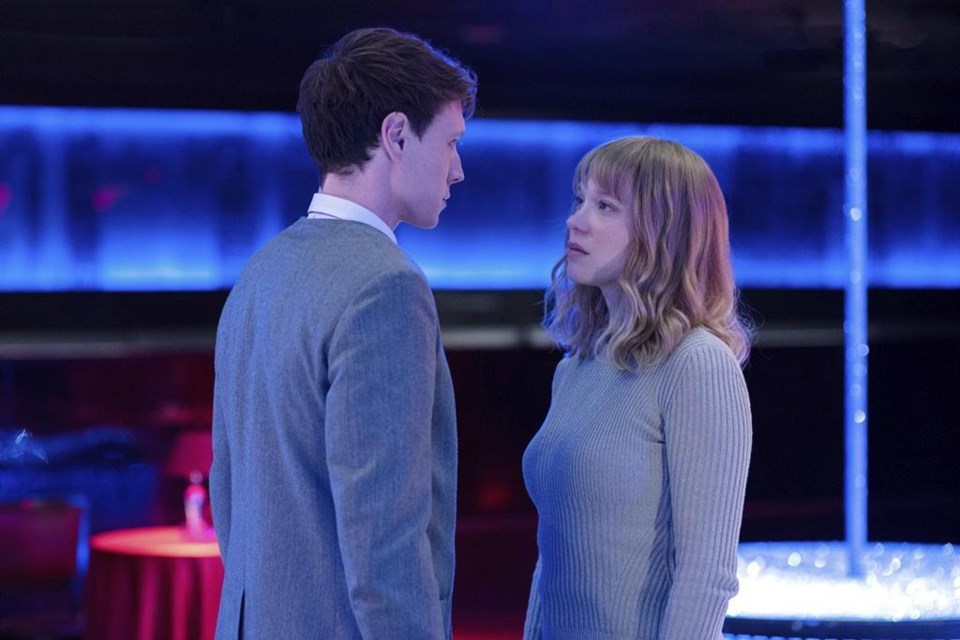NEW YORK (AP) ΓÇö The movies are good at resurrecting the past and imagining the future, but pinning down the present can be tricky. Movies take a long time to make. Once youΓÇÖve gone from idea to script to production to edit and, finally, to audiences, several years might have passed.
Take ΓÇ£Civil War,ΓÇ¥ Alex GarlandΓÇÖs seemingly that over last weekend. Garland wrote it in 2020 as the pandemic was unfolding and a presidential election was approaching. ΓÇ£Civil WarΓÇ¥ arrived in theaters four years later, loaded with the anxieties of societal breakdown and concern for the endgame to our current political extremism.
But it also very consciously stepped away from the bitter partisanship of today. ΓÇ£Civil WarΓÇ¥ sparked a lot of discussion by pairing California and Texas together in battle, but thatΓÇÖs far from the only gesture Garland made to avoid channeling the current, highly charged fissures of American society.
The movie, perhaps out of fear of being too contemporary, is set in a near-future dystopia. Scant mention is made of race, income inequality or climate change. It has connective tissue with many current issues, particularly the plight of journalists. But itΓÇÖs telling that even a provocative movie that imagines America in all-out warfare is timid about today.
Yet even if ΓÇ£Civil WarΓÇ¥ was bracingly current, would that have been appropriate in an election year? More importantly, would we even want to see it?
With many exceptions, the movie year in multiplexes can seem forever toggling between the period dramas of Oscar season and the sequels of summer, a seemingly willful dance to forever avoid the here and now. To a large degree, Hollywood runs on intellectual property, which, by its definition, is old. That didnΓÇÖt stop from being highly relevant 64 years after the dollΓÇÖs creation, or a 70-year-old Godzilla from , or 62-year-old Spider-Man proving surprisingly adept at
But finding movies free of decades-old baggage or loads of CGI that masks the real world can take some effort. That dearth has made a pair of spring releases ΓÇö Radu JudeΓÇÖs and Bertrand BonelloΓÇÖs ΓÇö all the more thrilling for their eagerness to confront our present reality.
ΓÇ£Do Not Expect Too Much From the End of the World,ΓÇ¥ the latest from the 47-year-old Romanian writer and director Jude, begins with an iPhone alarm clock going off. On the disheveled nightstand of Angela R─âducanu (Ilinca Manolache) is a wine glass, paperback Proust and a clock with no hands, beneath which it reads ΓÇ£ItΓÇÖs later than you think.ΓÇ¥
AngelaΓÇÖs life is a discombobulated swirl of GPS-navigated traffic, boorish men and work errands. Everything from the war in Ukraine to gun violence to Pornhub is filtered into her daily experience while she drives to appointments to make workplace-safety videos for a production company.
Angela occasionally boils over, though she mostly vents through TikTok, spouting misogynist incel rants with a filter that cloaks her identity. The persona is modeled after with human trafficking, rape and forming a criminal gang to sexually exploit women. HeΓÇÖs denied the allegations.
Interspersed with AngelaΓÇÖs story are excerpts from Lucian BratuΓÇÖs 1981 film ΓÇ£Angela Goes On.ΓÇ¥ That Angela (played by Dorina Laz─âr) spends her days driving, too, as a taxi driver, and the juxtaposition between the two Angelas invites a comparison between that era and now. Today, filming in a harsh monochrome, doesnΓÇÖt come off looking so good ΓÇö even next to the communist Romania of the 1981 film.
BonelloΓÇÖs ΓÇ£The Beast,ΓÇ¥ which expands this Friday in theaters, also uses separate timelines to illuminate present reality while pondering if we arenΓÇÖt just doomed to repeat the past.
The movie, inspired by the Henry James novella “The Beast in the Jungle,” follows two lovers — Gabrielle (Léa Seydoux) and Louis (George MacKay) —through three time periods: 1910 Paris, 2014 Los Angeles and 2044 Paris.
In the first chapter, Gabrielle and Louis are brought together — not for the first time, Louis reminds her — in belle époque Paris just before the Great Flood of 1910. Their connection is palpable but the encounter ends in tragedy, in an underwater sequence of haunting power in the doll factory of Gabrielle's husband.
The switch, then, from costume drama to more-or-less contemporary Los Angeles is jarring. But our characters are still some distant versions of their prior selves. Gabrielle, previously a pianist, is now an actor. Louis is a misogynistic vlogger whose incel delusions ΓÇö along with some strange force drawing them back together ΓÇö bring him again into GabrielleΓÇÖs orbit.
The echoes of their past lives are even more acute in 2044, by which time artificial intelligence has spread into all corners of life and Gabrielle is considering undergoing a procedure to ΓÇ£purifyΓÇ¥ her DNA. SheΓÇÖs told she wonΓÇÖt lose her emotions but will feel more ΓÇ£serenely.ΓÇ¥ The bookends of past and present in ΓÇ£The BeastΓÇ¥ put dehumanization ΓÇö from doll-making to A.I. ΓÇö in disquieting context.
ItΓÇÖs not a coincidence that both ΓÇ£The BeastΓÇ¥ and ΓÇ£Do Not Expect Too Much From the End of the EarthΓÇ¥ wrestle with incel culture. To do so may be a necessary ingredient for making sense of our present reality. a scuzzy, vital picaresque from last year, glibly but perceptively surveyed a ridiculous America of worlds-apart subcultures, conspiracy-addled shooters and bookish white supremacists. With a cast including Simon Rex, Jeremy O. Harris, Ayo Edebiri and Jacob Elordi, but a central heroine in Lillian (Talia Ryder), ΓÇ£The Sweet EastΓÇ¥ played like an ΓÇ£Alice in WonderlandΓÇ¥ for now ΓÇô an absurd odyssey for absurd times.
None of these films ΓÇö ΓÇ£The Beast,ΓÇ¥ ΓÇ£Do Not Expect Too Much From the End of the Earth,ΓÇ¥ ΓÇ£The Sweet EastΓÇ¥ ΓÇö are perfect, or even trying to be. But, unlike ΓÇ£Civil War,ΓÇ¥ they arenΓÇÖt dodging anything. The present may be messy and muddled but these films, in very distinct and outlandish ways, are at least trying to pin it down.
___
Follow AP Film Writer Jake Coyle at:
Jake Coyle, The Associated Press




